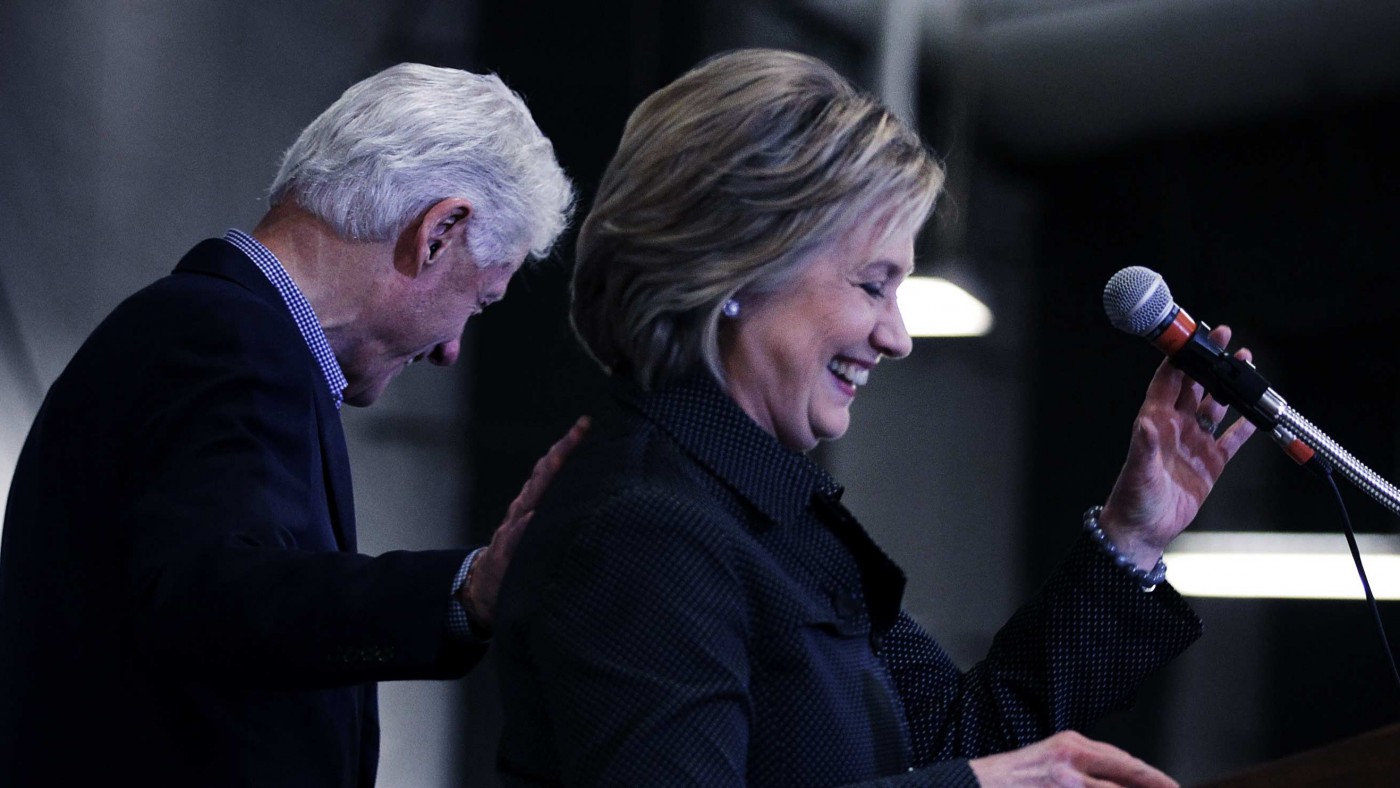At the Democratic debate this coming weekend, expect to hear Hillary Clinton claim that the economy does better when Democrats control the White House.
The claim is a staple of campaign appearances by the former secretary of state. She uttered a version of it recently in Boston, where she said, “I know my Republican friends hate me to say this, but this is a fact. Our economy does better when we have a Democrat in the White House.”
She said essentially the same thing last month in Memphis, Tennessee: “I know that my Republican friends don’t like me to say this, but the economy does better with a Democratic President in the White House.”
Here she is on October 30 in Atlanta, Ga.: “I’m proud that when Democrats are in the White House Americans do better. They do better economically.”
Given Mrs. Clinton’s assertiveness on the point — “This is a fact” — you might expect that the claim would be examined by the fact-checkers that some newspapers have deployed to scrutinize the presidential campaigns. Alas, at the moment the New York Times online interactive campaign fact-check feature includes ten statements by Donald Trump, but only two by Mrs. Clinton, neither of which is her claim about the economy’s performance with Democrats in the White House.
Politifact, a Pulitzer-Prize-winning operation of the Tampa Bay Times, did take a look at Mrs. Clinton’s claim that the stock market does better with Democrats in the White House and rated it “mostly true.” That analysis seems a bit charitable to me. While Mrs. Clinton’s claim may not be in the “five Pinocchio” or “liar, liar, pants on fire” categories, at best it’s highly misleading.
Two Princeton University economists, Alan Blinder and Mark Watson, examined the matter in a 2013 paper, “Presidents and the Economy: A Forensic Investigation.” They looked at the years 1947 through 2013 and did find that the economy grew faster with Democrats in the White House, though — and here’s the catch — they attributed much of the difference to “good luck” rather than “good policy.” They write, “Democrats would no doubt like to attribute the large D-R growth gap to better macroeconomic policies, but the data do not support such a claim….It seems we must look instead to several variables that are mostly ‘good luck.’”
Mrs. Clinton doesn’t mention that in her campaign speeches. I can understand why; it probably would undercut the persuasiveness of her argument. An expectation of good luck isn’t much of a reason to vote for anyone.
One person who did take a close look at this issue was a contributor to Forbes, Jeffrey Dorfman. He notes that the years most responsible for Democratic outperformance, 1961-1969, were characterized by John F. Kennedy’s supply-side tax cuts, a policy mostly abandoned by the modern Democratic Party. Mr. Dorfman writes that if you look at a more recent period, 1977 to 2014, “the best performance is Democrat president-Republican Congress with an average economic growth rate of 3.9 percent, followed by Republican president-Republican Congress by an average of 3.2 percent.”
Indeed, if economics were the only consideration, President Hillary Clinton and a Republican Congress might not be a terrible outcome. Mr. Dorfman’s analysis suggests that if past performance predicts future results, that combination would be a better outcome than Mrs. Clinton and a Democratic Congress.
It’s all a bit complex to sort out because of the effects of expectations. In my view, for example, the economy really tanked in the final quarter of 2008 in part because of the expectation (and then the election) of a Barack Obama presidency, though George W. Bush and the Republicans get the blame.
Don’t expect Mrs. Clinton to start talking on the presidential campaign trail about the importance to the economy of American voters reelecting a Republican Congress along with her. I wouldn’t bet on the political fact-checkers rising to the occasion, either. I do, though, have some confidence in the electorate. In the worst case, if the voters make a mistake on this front, they are pretty good about correcting it rapidly two years later in midterm elections. The economy has a way of changing course at the same time. That could be luck, or it could be the value the market sees in the checks and balances written into our Constitution.


